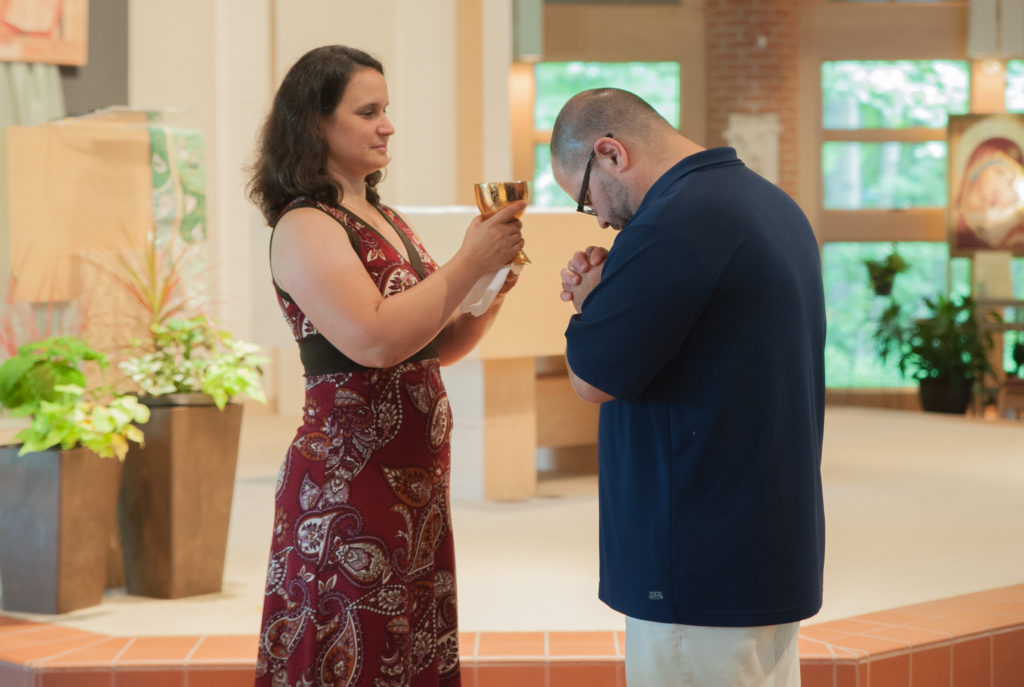Serving the church has brought a deeper appreciation of the Eucharist to those who distribute communion and care for the items used during liturgies.
Liz Harter is a Eucharistic Minister, a role she also had in high school and in college. She said she has grown in faith since then, partly because of serving in that capacity. She’s found that she pays more attention to the entire Eucharistic prayer on the days she’s distributing communion. Receiving communion “is an extraordinary thing…Just because we do it every week, doesn’t mean we should take it for granted,” she said.
It’s also enriched her experience of the other sacraments. She makes sure she goes to confession regularly so she feels she’s in a good place to distribute communion. “The Eucharist is such a core part of our identity… I feel blessed that I am able to serve,” Liz said.
When people ask her about being a Eucharistic Minister, Liz tells them that it helps to enrich her faith more. People often feel they aren’t worthy to become a Eucharistic Minister, but she reminds them: “Jesus has always worked through imperfect people. If you have a desire to serve, Jesus will guide you.”
Bart Conry said he and his wife Shelley both felt they weren’t “good enough” to serve as Eucharistic Ministers when they were asked. They didn’t respond to the first invitation, but to the second one. He said the more they served, the more they realized what a privilege it was. Now he calls it “the ultimate invitation”.
One thing Bart has found is universal is that every Eucharistic Minister he talks to says that serving seems to increase their desire to be closer to Christ. He has found this to be true, as well. “The fact that my wife and I serve together has kind of helped us jointly grow in our faith,” he said. They come to Mass together and prepare for their role during Mass. He said it makes him more focused on the Mass.
There are a lot of logistics involved in distributing communion, but “the important thing to remember is you’ve helped people receive Jesus. That’s what the focus should be on,” Liz said.
Other parishioners who are involved in the liturgies are rarely seen in their role as sacristans. While many Catholics might have a hard time defining what a sacristan does, it is the sacristans who care for the linens, vessels and ciboria that are used during Masses. Nancy Mayes has been a sacristan for many years. “I do consider it an honor that I was asked…These items are precious because they are what bring us the body and blood.”
Nancy and two other parishioners take turns caring reverently for the linens, vessels and ciboria. Corporals, the linen cloths on the altar, have to be hand washed, ironed, starched and folded in a specific way. Every week, vessels and ciboria are cleaned with a very soft cloth that won’t mar the surface.
Being a sacristan makes Nancy feel more connected to the liturgy. “It has given me a sense of serving the Lord, the parish. I feel good about the fact that I was asked to do it and that I feel the presence of the Lord when I’m in the sacristy. It’s a service to Him as well as to the parish,” she said.

